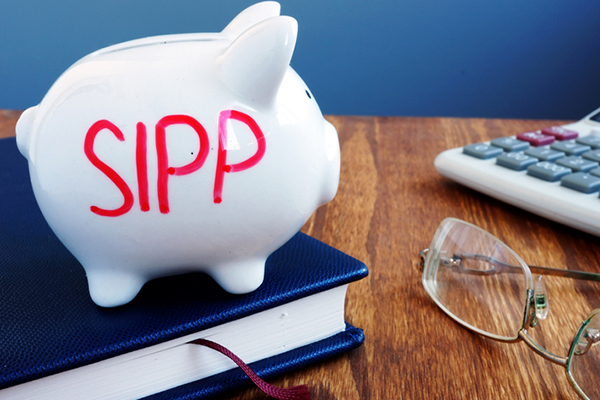ii Top 10...things to keep in mind when managing your own SIPP
10th August 2021 13:28
by Rebecca O'Connor from interactive investor

In the first article of the new ii Top Ten series, our pensions expert Rebecca O’Connor (pictured below) highlights the crucial things investors must consider when managing a Self-Invested Personal Pension (SIPP).
1. If you are not due to retire in the next 10 years, you are investing for the long term. This means you can afford to target higher growth options, but be aware that these come with more risk.
2. Think about how long you are investing for as this will help determine your choices. The longer the term, the more risk you can take because you have time to wait for investments to recover from a fall in value.
3. Consider a monthly amount that is affordable to you. Contribute too much and you might end up resenting your contributions and feeling like you can’t afford them. You might then stop contributing. The amount you set aside monthly has to be sustainable and realistic. You can always build up as you go along.
4. You will need to diversify across asset classes, sectors and geographies for yourself, so make sure you understand the principles of diversification well before you start, and look at underlying holdings and fund reports.
- Are you saving enough for retirement? Our pension calculator can help you find out
- A guide on how investors can protect against inflation
- Take control of your retirement planning with our award-winning, low-cost Self-Invested Personal Pension (SIPP)
5. Don’t forget about investment trusts, which you can hold alongside funds in your SIPP. There are a number of benefits to investment trusts including dividend smoothing, gearing and high liquidity.
6. There are platform charges but there are also fund charges: make sure you are comfortable with what you are paying. Actively managed funds usually come with a higher fee, which in theory, can be justified by the potential for higher returns. But you might want a mix of active and lower-cost passive approaches in your SIPP to manage fees.

7. Make sure you are getting all the tax relief you are due. With a SIPP, basic-rate tax relief is claimed for you but you will have to claim higher or additional rate relief through your tax return.
- Bank of England official says retirement age may need to rise to fight recessions
- Pensions jargon buster
8. Make use of your annual contribution allowance, which is up to the level of your annual earnings, or £40,000.
9. As this is your pension, consider checking performance less frequently than you might a trading account. Checking too frequently can cause unnecessary anxiety for an investment that is locked away for the long term.
10. Don’t forget to fill in your nomination of beneficiaries or ‘expression of wishes’ form, giving details of who you want to receive your pension when you pass away.
These articles are provided for information purposes only. Occasionally, an opinion about whether to buy or sell a specific investment may be provided by third parties. The content is not intended to be a personal recommendation to buy or sell any financial instrument or product, or to adopt any investment strategy as it is not provided based on an assessment of your investing knowledge and experience, your financial situation or your investment objectives. The value of your investments, and the income derived from them, may go down as well as up. You may not get back all the money that you invest. The investments referred to in this article may not be suitable for all investors, and if in doubt, an investor should seek advice from a qualified investment adviser.
Full performance can be found on the company or index summary page on the interactive investor website. Simply click on the company's or index name highlighted in the article.
Important information – SIPPs are aimed at people happy to make their own investment decisions. Investment value can go up or down and you could get back less than you invest. You can normally only access the money from age 55 (57 from 2028). We recommend seeking advice from a suitably qualified financial adviser before making any decisions. Pension and tax rules depend on your circumstances and may change in future.